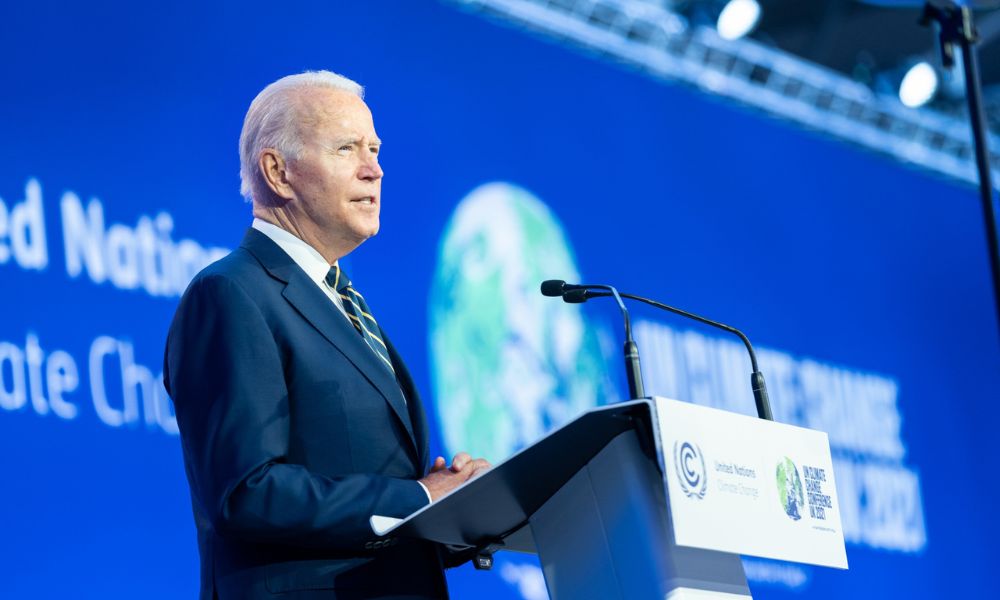
In the face of mounting evidence and increasing urgency, the Biden administration has taken significant strides to address one of the most pressing global challenges of our time: climate change.
Since taking office in January 2021, President Joe Biden and his team have made it abundantly clear that they are committed to tackling the climate crisis head-on.
This blog post will delve into the Biden administration's stance on climate change and the actions they have taken to address this critical issue.
|
Are you a Tax Lawyer in USA? |
The Biden administration's stance on climate change represents a radical departure from the previous administration's approach.
Unlike the skepticism and disregard for climate science that characterized the Trump era, the Biden administration acknowledges the scientific consensus that human activities are driving global warming.
They also recognize that climate change poses a severe threat to the planet's ecosystems, economies, and public health.
One of the first actions President Biden took after assuming office was to rejoin the Paris Agreement.
This international accord aims to limit global warming to well below 2 degrees Celsius above pre-industrial levels, with a further goal of limiting the increase to 1.5 degrees Celsius.
By recommitting to this agreement, the United States signaled its intention to be a global leader in the fight against climate change.
The Biden administration has set ambitious climate targets, pledging to reduce greenhouse gas emissions by 50-52% below 2005 levels by 2030.
This goal aligns with the recommendations of climate scientists and demonstrates a commitment to substantial and immediate action.
Achieving this target will require a comprehensive overhaul of the U.S. energy system, a transition to clean energy sources, and aggressive policies to promote sustainability.
To achieve their emissions reduction targets, the Biden administration has proposed a Clean Energy Revolution that includes investments in clean energy infrastructure, electric vehicle charging stations, and clean energy research and development.
The administration's American Jobs Plan aims to create millions of good-paying jobs while simultaneously addressing the climate crisis.
This plan not only focuses on reducing emissions but also on building a more resilient and equitable future.
One of the key policy proposals put forth by the Biden administration is the Clean Energy Standard (CES).
This initiative aims to transition the United States to 100% clean electricity by 2035.
By incentivizing the production of clean energy and penalizing the use of fossil fuels, the CES would be a critical step toward reducing emissions in the power sector, which is a major contributor to greenhouse gas emissions.
The administration is also pushing for an electric vehicle (EV) revolution.
Their plan includes substantial investments in EV charging infrastructure, tax credits to encourage EV adoption, and a commitment to transitioning the federal vehicle fleet to electric power.
This initiative not only reduces emissions but also supports innovation in the transportation sector, creating green jobs in the process.
The Biden administration recognizes that climate change disproportionately affects vulnerable and marginalized communities.
To address this issue, they have emphasized environmental justice in their climate policies.
This includes directing 40% of clean energy and infrastructure investments to disadvantaged communities, as well as establishing an Environmental and Climate Justice Division at the Department of Justice to ensure equitable enforcement of environmental laws.
The Biden administration's stance on climate change represents a significant departure from the past, signaling a strong commitment to addressing the climate crisis.
Their ambitious targets, investments in clean energy, and emphasis on environmental justice demonstrate a comprehensive approach to tackling climate change.
While the road ahead is challenging, the actions taken by the Biden administration offer hope that the United States can play a leading role in the global effort to combat climate change and pave the way for a more sustainable and equitable future.